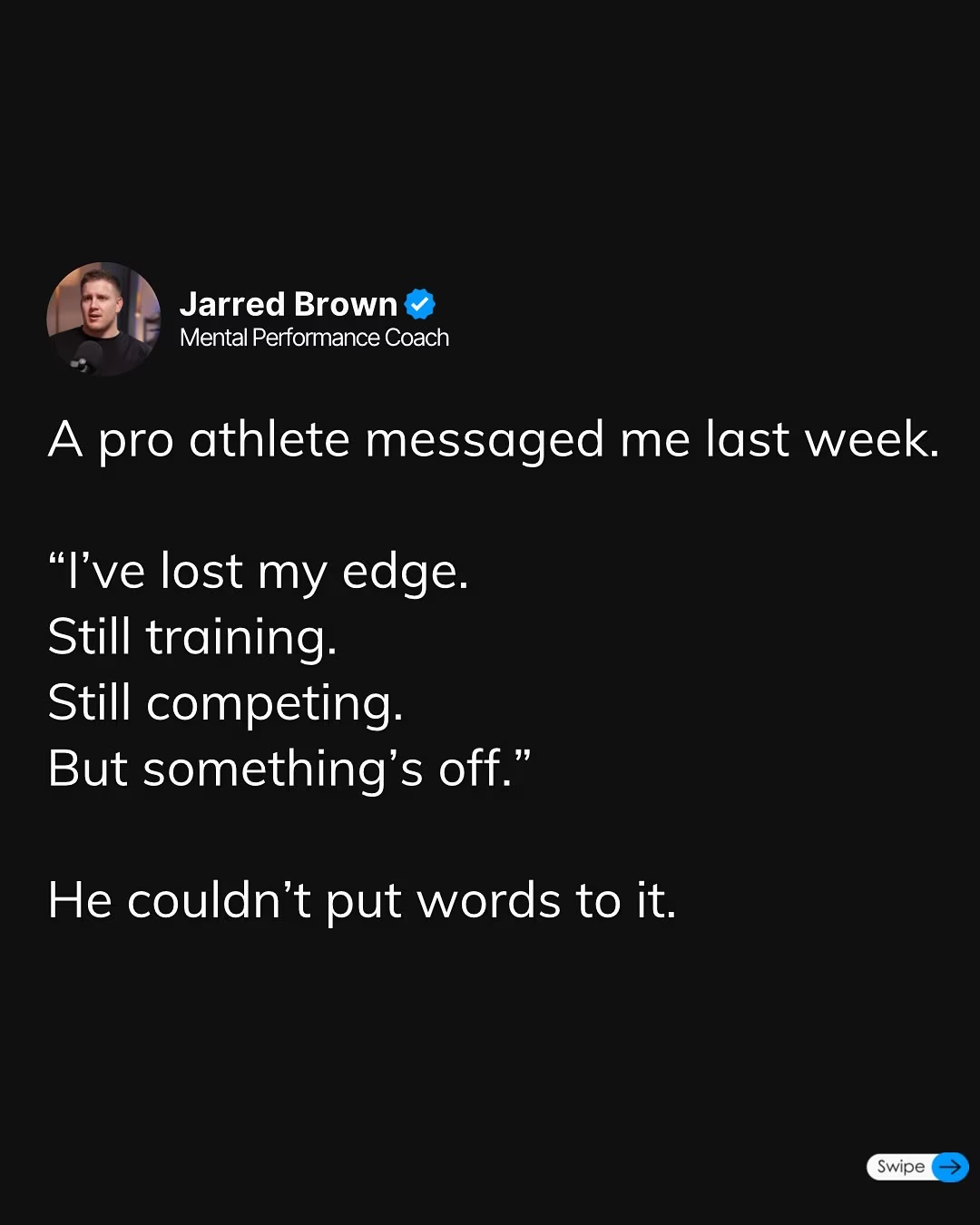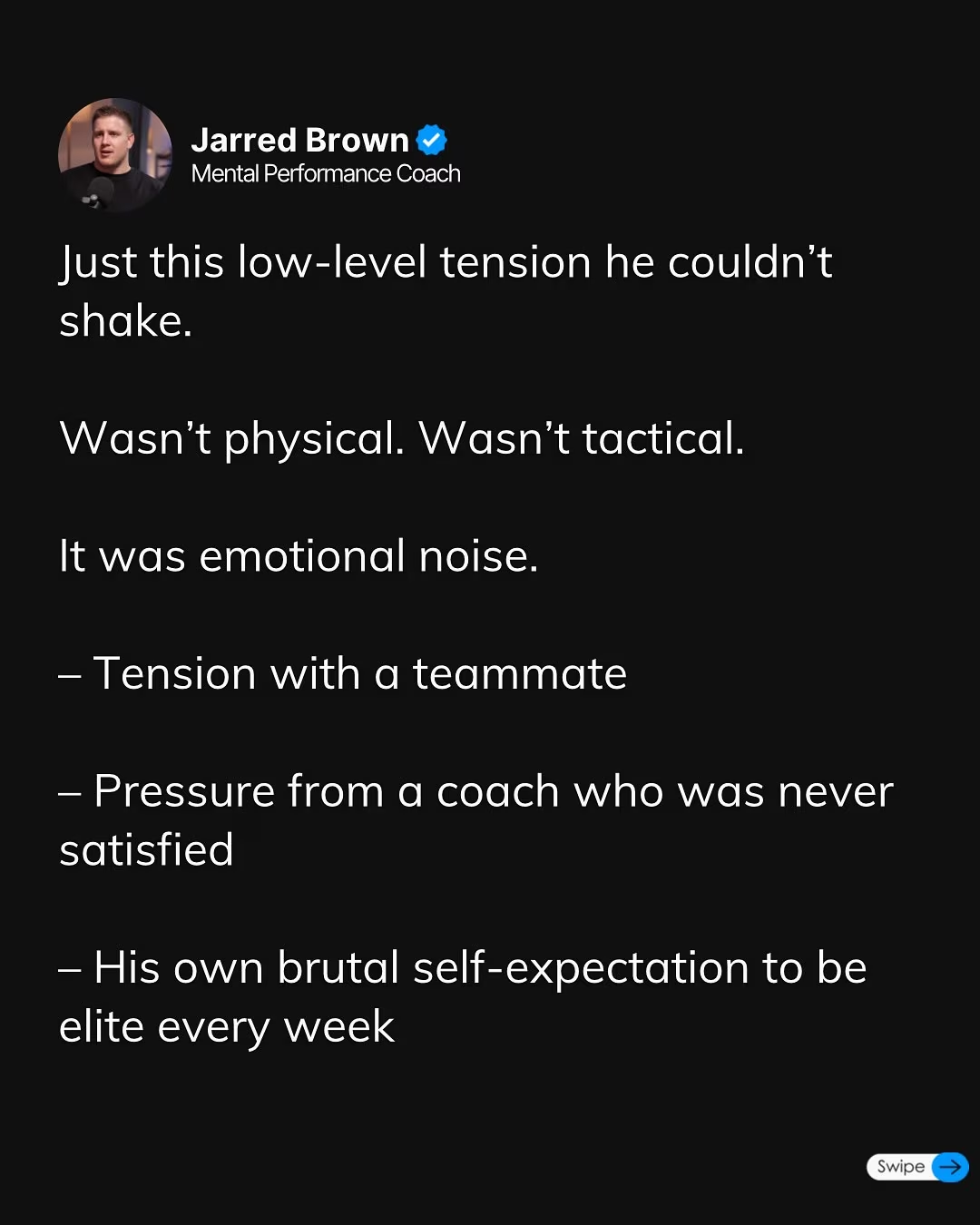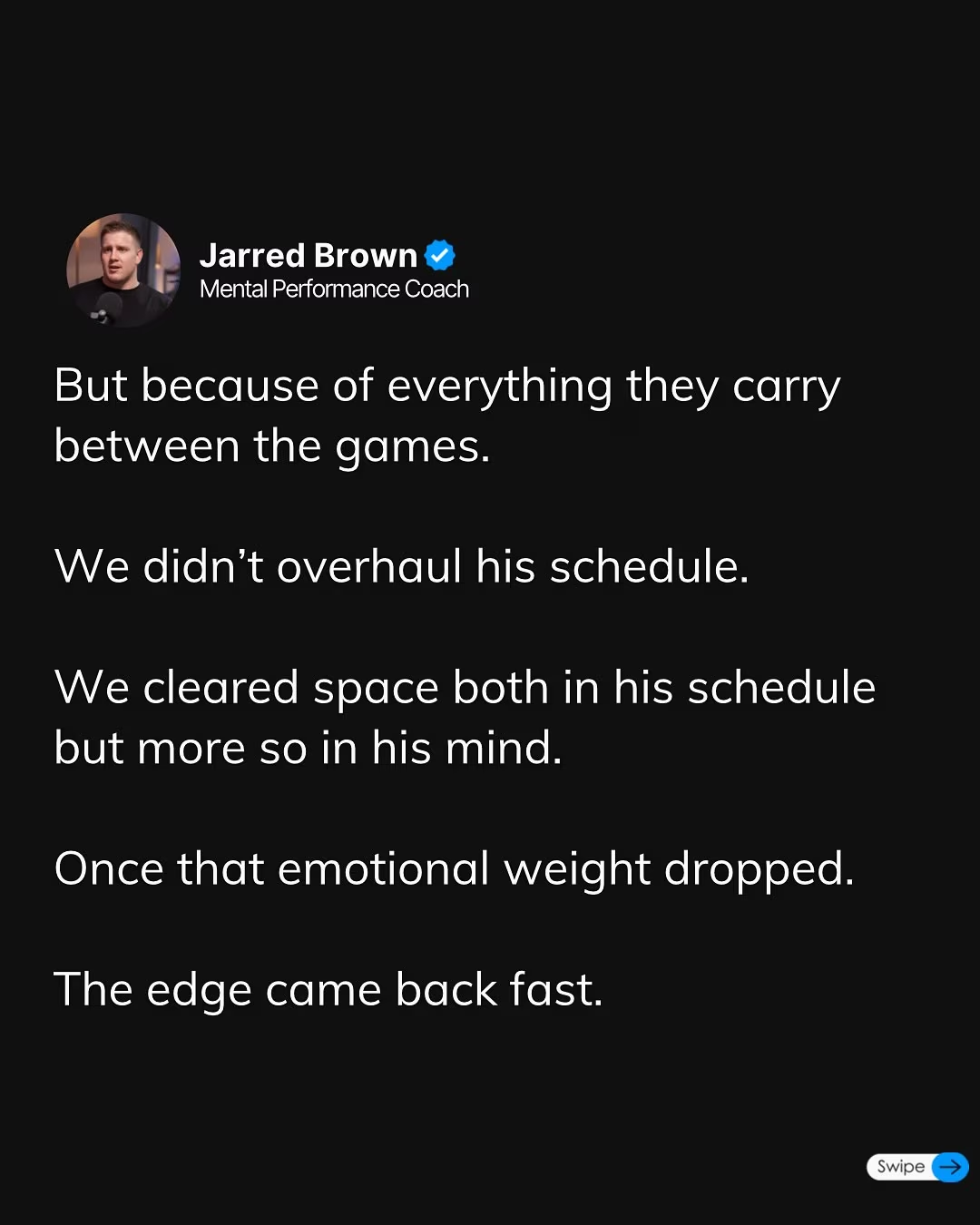Athlete Overcomes Emotional Weight To Regain Their Edge
Shifting emotional weight unlocks hidden performance potential, inspiring athletes to excel.

Image: Instagram
In a recent candid conversation, a professional athlete reached out with a raw admission: “I’ve lost my edge. Still training. Still competing. But something’s off.” The message was more than a sporting setback—it was a revelation of the emotional noise that disrupts performance. Jarred Brown, a renowned mental skills coach, explains how clearing the clutter in one’s mind can restore focus and brilliance on the field.
Understanding The Emotional Weight
The athlete described his struggle not as a loss of physical strength or declining tactics but as an inner tension born out of relationship challenges and personal expectations. He detailed a series of burdens: tension with a teammate, the relentless pressure from a coach who was never fully satisfied, and his own uncompromising drive to excel week in and week out. This cocktail of stress, often invisible, had crept into his performance. When asked, “When was the last time you felt clear and free out there?” his response was a haunting admission: “Honestly… I don’t know.”
This exchange highlights a critical aspect of modern competitive sports: that the battle isn’t always fought on the field. Instead, it is often decided by the weight of emotions and the inner dialogue that accompanies every performance. The athlete’s admission is a stark reminder that even top performers can be overshadowed by the internal pressures they carry off the field.
Clearing The Mental Clutter
Jarred Brown further explains, “Sometimes you don’t need more discipline. You just need the mental chatter to be removed so you can get back to expressing yourself freely.” Instead of overhauling the strict schedule of his client, they retained his training regimen while simultaneously creating mental space—clearing the inner load that was undermining his performance. Once that emotional burden was lifted, the athlete’s inherent edge returned rapidly.
The process involved acknowledging the tension rather than suppressing it. Through tailored sessions and reflective questioning, the athlete began to isolate and address the layers of emotional cost that had accumulated between competitive events. This shift from competing solely against external opponents to managing one’s internal battles has become a hallmark of modern sports psychology.
Implementing A Mindset Shift
In one of his recent coaching sessions, Jarred Brown emphasized the value of small, consistent mental resets. Drawing on anecdotes shared in his posts on Instagram, he noted that the best athletes develop routines that center their thoughts and provide clarity. Techniques such as morning routines, meditation, journaling, and quiet reflection are not mere add-ons to fitness routines—they are essential tools for maintaining focus and composure.
One post from Brown encapsulated the essence of his work: an athlete’s success is found not just in physical effort but in how quickly one can refocus after mistakes, in the ability to minimize overthinking, and in a calm acceptance of one’s challenges. He explained that performance is not a matter of dazzling discipline alone, but of learning to simplify when anxiety threatens to take over. By clearing the mental clutter, athletes can find new perspectives on both success and failure.
The Path To Recovery And Regaining The Edge
What ultimately set this pro athlete on his renewed path was the willingness to confront the emotional tension head-on. Jarred Brown’s approach is both straightforward and profoundly humane: creating moments of mental clarity by easing the burden rather than imposing further discipline. This method allowed the athlete to rediscover the natural flow of his performance—a state where he could train, compete, and express his true self free from the heavy load of external and internal pressures.
The narrative shared here resonates with a broader truth in sports: the journey to high performance is as much about managing the mind as it is about physical prowess. As Brown often highlights in his sessions and social media insights, the difference between good and great often lies in those micro-decisions—adjusting one’s mental state, embracing vulnerability, and trusting the process even when doubt creeps in.
This story, anchored in genuine human emotion and professional guidance, serves as an important lesson for athletes at all levels. By acknowledging the invisible battles fought behind every victory and loss, sports professionals and enthusiasts alike can better appreciate the delicate balance between talent, technique, and mental fortitude.
Ultimately, this athlete’s journey underlines a timeless message: overcoming emotional noise is not about eliminating struggle altogether but learning how to let go of unnecessary burdens. With the right support, even a heavy heart can make space for a winning edge.
Jarred Brown’s work remains a beacon for those who understand that true performance excellence transcends physical training—it requires a mind that is clear, present, and free to perform at its peak.
Read full bio of Nisha Bharatan




























